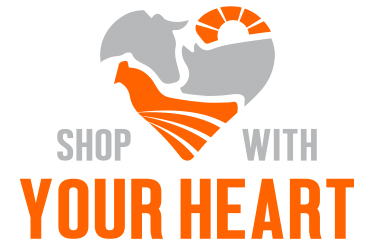
Farm: Ward Family Farm
Location: Monroe, New Hampshire
Operation Profile:
- Processes over 3,000,000 eggs per day
- Partners with 200+ family farms in the U.S.
Certification: Certified Humane®, a project of Humane Farm Animal Care (HFAC)
Background
In the 1980s, the Ward Family Farm was struggling, unable to keep up with industrial-scale egg producers. So when the third generation of Wards inherited the farm, they took it in a new direction. Carol Ward Laflamme (Gerry's wife) and her cousin Peter (“Pete”) Stanton shifted to cage-free, organic production, eventually becoming the first Certified Humane® egg producer in the nation. They credit this shift for significantly benefiting their business.
By 2019, Carol and Gerry’s son Jesse became CEO, and the Ward Family Farm now serves as company headquarters along with one of the company’s main processing facilities, which processes just over 100,000 eggs per day. Additionally, Pete and Gerry’s partners with more than 200 small family farms throughout the United States to raise free range hens. In accordance with Certified Humane® Free Range standards, these hens have access to grassy pastures (weather permitting), lay their eggs in traditional nests and have dust areas to perform natural behaviors. Pete and Gerry’s products are available in fine food retailers across the nation, as well as in some restaurants and colleges.
Getting Certified
To credibly distinguish themselves in a marketplace saturated with unverified claims, Pete and Gerry’s sought a program that certified compliance with strict “free range” requirements. In 2003, they chose Certified Humane® because they viewed it as trustworthy and believed its robust standards could help the egg producer expand in its target retail markets.
In order to become certified and maintain certification, a few partner farms had to make some changes, including installing more scratching and dust-bathing areas, increasing the amount of available perching area, and creating elevated perches that timid hens can use to remove themselves from the larger flock. Pete and Gerry’s reports that with every rigorous audit, the company has to make a few small, reasonable changes, such as adding additional shade structures to pasture.
Beyond the standard application fee of $75, Pete and Gerry’s pays a few hundred dollars annually for its audit fee, as well as the audit fees for its supplier farms. It also pays the certification cost in the form of a royalty on products sold with the Certified Humane® label. Overall, they’ve found the program fees to be “very reasonable” and invaluable to consumers who are searching for trustworthy companies.
HFAC Certification Outcomes
Benefit to Animals. According to Pete and Gerry’s, the overall percentage of mortality over the life of a free range flock is lower than average for similar flock sizes. Moreover, their indoor scratching space and outdoor range areas allow the hens to exercise.
Cutting Through Market Confusion. Pete and Gerry’s notes that with consumers growing increasingly aware of unverified claims made by producers, the Certified Humane® label helps differentiate their eggs by providing important third-party credibility. Pete and Gerry’s uses the Certified Humane® logo on its website and all of its brand materials and packaging.
Technical Advice. Because Certified Humane® provides technical advice and subsidizes program costs for small producers, the company believes it is accessible to producers of all scales. Certified Humane® has also encouraged Pete and Gerry’s producers to share ideas about how to comply with standards and improve hen welfare through improvements like new roost and nest designs.
Why Certify with HFAC?
While serving as former CEO for Pete and Gerry’s, Jesse had this advice for farmers considering HFAC certification: A welfare-focused approach isn’t “just good for our hens and the planet. It has also been good business. Consumers are searching for alternatives to the traditional food system. Integrity in labeling is important now and will become even more important in the future, and I believe that when it comes to animal welfare, there is no higher and more trusted standard for consumers than Certified Humane®.”

 Take the Shop With Your Heart survey and get materials that will help you make great shopping decisions.
Take the Shop With Your Heart survey and get materials that will help you make great shopping decisions.